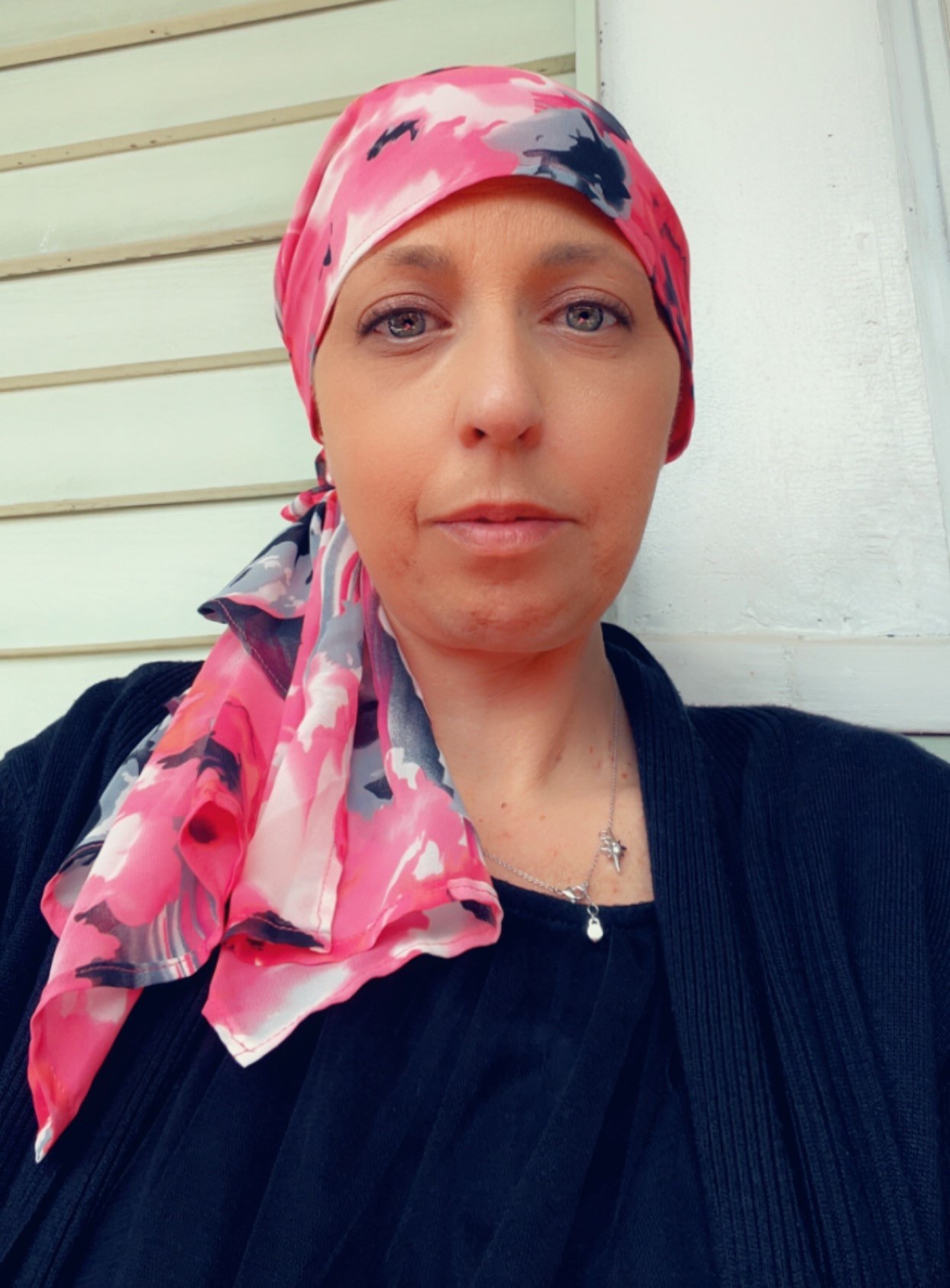 Kellie Defelice, a 44-year-old teacher from Quincy, Massachusetts, first knew something was wrong in February 2021. She experienced frequent urination, persistent enough that Kellie found it alarming. Despite multiple visits to urgent care and efforts to see her primary care doctor, she was repeatedly told she had anxiety and a urinary tract infection (UTI).
Kellie Defelice, a 44-year-old teacher from Quincy, Massachusetts, first knew something was wrong in February 2021. She experienced frequent urination, persistent enough that Kellie found it alarming. Despite multiple visits to urgent care and efforts to see her primary care doctor, she was repeatedly told she had anxiety and a urinary tract infection (UTI).
“I kept saying, ‘This doesn’t feel like a UTI,’ but I wasn’t being heard,” Kellie recalled. With appointments delayed until December and fear of visiting the emergency room during the COVID 19 pandemic, she reached out to Brigham and Women’s Hospital and found a new primary care physician (PCP). Her new PCP ordered an ultrasound of her kidneys, which led to a CT scan and the discovery of a nine-centimeter mass pressing against her ureter. A biopsy and further testing by Michael George Muto, MD, a now retired gynecologic oncologist at Dana-Farber Brigham Cancer Center, confirmed the diagnosis: cervical cancer. The cancer had advanced to her bladder wall and pelvic lymph nodes, making her a stage 4A. Dr. Muto shared the news with Kellie that, due to the advanced stage, her cancer was inoperable.
Kellie’s diagnosis brought her past medical experiences into sharp focus. Prior to 2018, Kellie had always kept up with her Pap smears. But that year, under the care of a gynecologist outside of the Brigham, she underwent what she referred to as a “traumatic procedure.” The minor surgery, a Loop Electrosurgical Excision Procedure (LEEP), was performed to remove abnormal cells from her cervix. Afterwards, Kellie was told that she had clear margins. However, the negative experience, which rendered Kellie fearful of going back to a gynecologist, combined with inaccurate results from the LEEP, delayed further monitoring and contributed to the progression of her cancer.
Now, with a clear diagnosis in hand, Dr. Muto referred Kellie to Susana Campos, MD a gynecologic medical oncologist, and Aiven Dyer, MD, Director of Gynecologic Radiation Oncology at Dana-Farber Brigham Cancer Center. Together, they developed an aggressive treatment plan where Kellie underwent 27 external radiation sessions, five internal brachytherapy radiation treatments, and five rounds of cisplatin chemotherapy.
Despite her fears, Kellie praised the care she received. “I was terrified of brachytherapy, but the nurses at Brigham and Women’s made sure I was pain-free. They also kept me comfortable and helped me through every step,” she shared. “Dr. Campos and Dr. Dyer have been my biggest cheerleaders. Their dedication gave me confidence that I was in the best hands.”
By October 2022, Kellie had completed her primary treatment and a follow-up scan in January 2023 revealed no evidence of disease. To ensure the cancer was eradicated, her care team recommended an additional treatment combination of chemotherapy paired with immunotherapy to ensure all cancer cells were completely eliminated.
Nowadays, Kellie is focused on moving forward. Although she continues to receive immunotherapy, she’s back in the classroom, inspiring her students who had sent her encouraging messages throughout her treatment. “I feel good overall, though I get anxious before scans,” she admitted. “I still see Dr. Campos every three weeks for immunotherapy and Dr. Dyer every six months for follow-ups.”
Throughout her experience, Kellie’s sources of strength came from her family and from Cervivor, a patient advocacy nonprofit that’s dedicated to spreading awareness, community and encouragement for people diagnosed with cervical cancer. At home, her husband, mother, and other relatives provided unwavering support, driving her to appointments and helping her through recovery. Yet, one of the hardest moments for Kellie was missing her daughter’s college move-in day. “She left for D.C. the day after I started radiation,” Kellie said. “I always imagined being there for that milestone, but I knew starting treatment right away was the best decision.”
Kellie’s experience has inspired her to become involved in raising awareness of cervical cancer screening and prevention. One of her goals is to work on improved communication about the human papillomavirus (HPV) vaccine. “The HPV vaccine is a cancer prevention vaccine, but it can be interpreted as prevention for sexually transmitted infections (STIs),” she explained. “That causes hesitation among parents of young children. When my daughter was younger, I made sure she had all her vaccines, but I hesitated to get her vaccinated for HPV because of misinformation. Now I know it’s a cancer prevention vaccine. Together we can eradicate cervical cancer, we just need to start by changing the narrative,” she said.
Kellie’s daughter, a junior in college, has since been vaccinated for HPV. Kellie has also taken steps to inspire her loved ones —including her two younger sisters— to prioritize routine screenings. She hopes to expand her advocacy efforts, potentially organizing events like fundraising walks to raise awareness for cervical cancer and to visit universities to inspire college-aged women to get screened and vaccinated. “My goal is to educate women about cervical cancer and the importance of screenings,” she said. “If my story can inspire even one person to get checked, then it’s worth it."

Interested in finding out more? Learn about HPV and its association with cervical cancer.
For over a century, a leader in patient care, medical education and research, with expertise in virtually every specialty of medicine and surgery.
About BWH